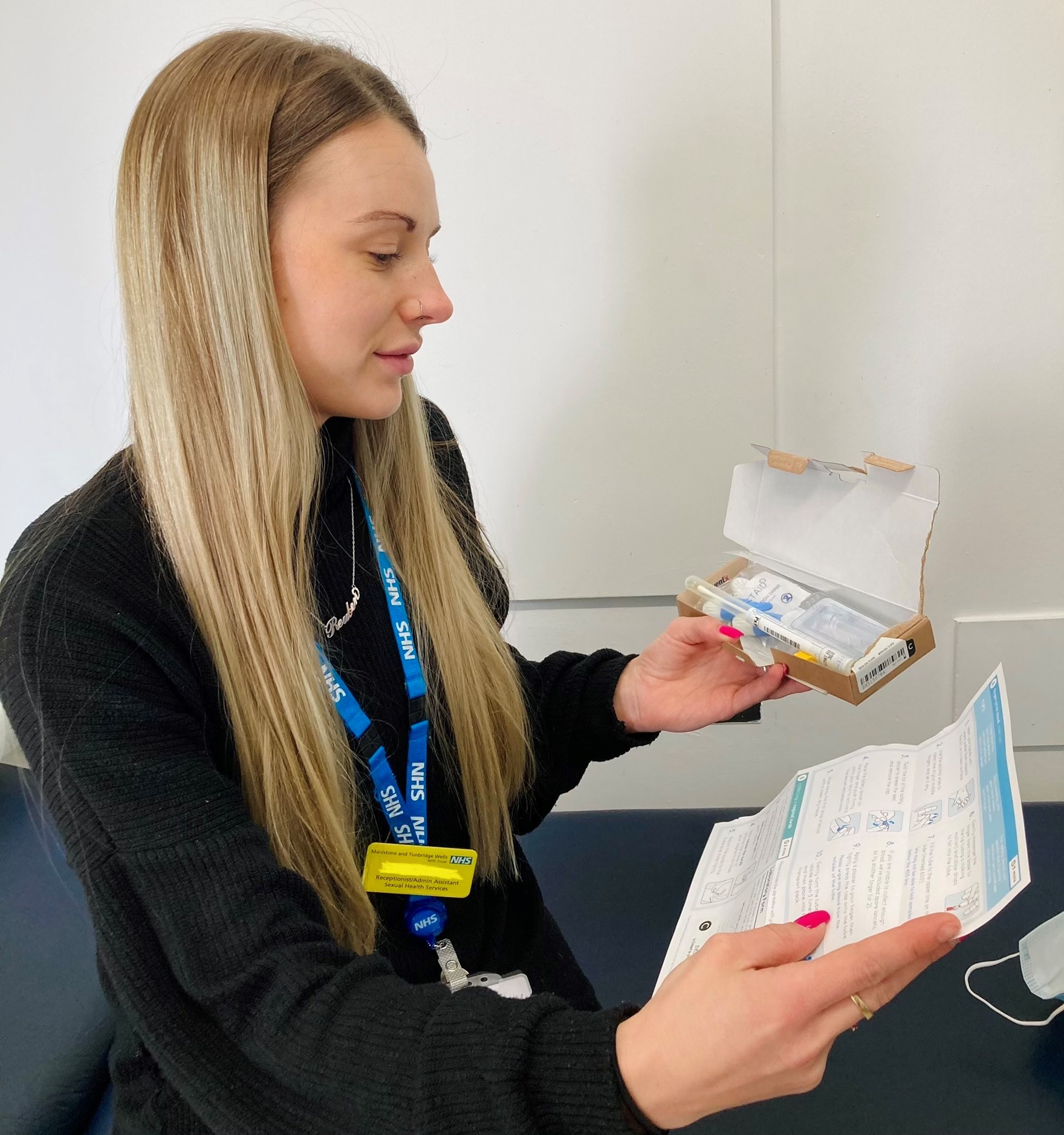
Sexually active people living in Kent who feel they may be at risk of having contracted HIV are reminded they can still get tested during the pandemic using a home testing kit.
The message comes from health services across Kent this National HIV Testing Week (Monday 1 to Sunday 7 February) which aims to promote regular HIV testing among key populations to help reduce the numbers of undiagnosed people and those diagnosed late.
Those at higher risk of contracting HIV include men who have sex with men, anyone whose sexual partners have been from a higher prevalence areas such as Subsaharan Africa and anyone who may have injected drugs.
Kent County Council commissions Maidstone and Tunbridge Wells NHS Trust’s Sexual Health Services to run services in the west and north Kent areas while Kent Community NHS Foundation Trust operate east Kent services.
HIV testing is provided to anyone within Kent, through the online service or sexual health clinics and some GP Surgeries. Due to Covid-19 restrictions, sexual health services are no longer able to offer walk-in clinics but the team at MTW NHS Trust are keen to raise awareness that people aged 16 plus can still get tested for HIV using a home testing kit which can be ordered online and delivered through their letterbox.
Sue Jones, Sexual Health Nurse, said: “Some people may be worried that they can’t access HIV testing through the usual routes due to the pandemic but home testing kits means there is no reason to delay testing. The sooner you find out whether you have HIV, the better it is for your health.”
Dr Lesley Navaratne, Clinical Director and Lead for HIV services at MTW NHS Trust, said: “The test involves collecting a small sample of blood from your finger-tip in the privacy of your own home and sending it back in the post free of charge.
“The most recent data, from 2017/19, shows that 53% of people diagnosed with HIV in Kent did so at a late stage but advances in the treatment and management of HIV means that many people are now able to live a normal life for many years with this condition.”
Testing for HIV can be done as early as four weeks after an episode of unprotected sex, or sooner if you have any symptoms of fever, rash and sore throat which can be a sign of early (primary) HIV transmission.
Lesley added: “If you have a reactive home test result it is important to have a second test to confirm the result as soon as possible. A team of trained staff will support and advise you on what to do next. If a confirmation test is positive you will be offered all the help you need including access to free HIV treatment to help you lower the levels of the virus in your blood which will be good for you as well as reducing the risk of passing the virus on to others. If you test negative, then it can put your mind at ease.
“Everyone who is sexually active should have an HIV test and have regular tests if they are at higher risk.”
Kent County Council Deputy Director of Public Health, Allison Duggal said it is vital to reinforce the importance of early testing: “People who have HIV but don’t realise it risk delays in starting treatment, as well as being a risk to other people being exposed to the virus.
“Levels of HIV testing remain too low in most at-risk populations, and while the pandemic continues to affect some services, home testing kits are available so people can continue to check their status. Testing is not just good for the individual, it’s good for the whole community.”
To access an HIV test and for more information on services available in Kent, go to www.kent.gov.uk/HIVtest
To watch a video on how to use a HIV home testing kit click here.
